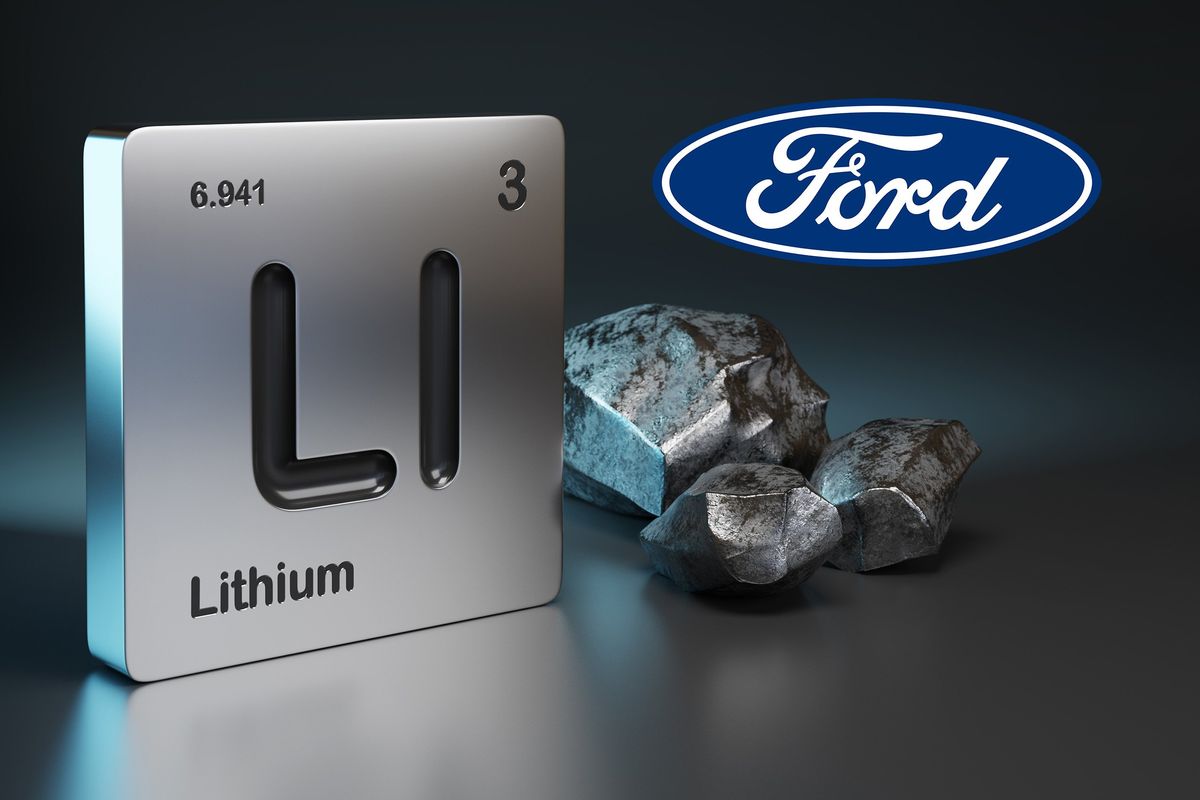Ford Inks Multiple Lithium Supply Deals to Meet Ambitious EV Targets
US carmaker Ford signed multiple lithium supply deals on Monday, entering agreements with Albemarle, SQM, Nemaska Lithium, Compass Minerals and EnergySource Minerals.

US carmaker Ford (NYSE:F) moved ahead on Monday (May 22) to secure supply of lithium, a key battery element needed for the 2 million electric vehicles (EVs) the company hopes to produce by 2026.
As the race to find stable and quality sources of battery raw materials heats up, the Michigan-based company has inked multiple lithium supply deals with companies operating in North America and countries with free trade agreements with the US.
As a result of these deals, Ford will be able to benefit from tax credits under the US Inflation Reduction Act, legislation that kicked off last year to support the buildout of a more resilient domestic EV supply chain.
Ford signed a lithium hydroxide deal with top producer Albemarle (NYSE:ALB), which will supply the carmaker with more than 100,000 metric tons of lithium over five years starting in 2026. The lithium will come from domestic sources or countries with free trade agreements with the US, such as Chile, where the company has brine operations in the Salar de Atacama.
"With the growing demand for EVs in the United States, our customers are seeking to regionalize their supply chain for greater security, sustainability and lower costs," said Eric Norris, president of Albemarle's energy storage division. "This agreement exemplifies the industry collaborations and investments required."
SQM (NYSE:SQM), the second largest lithium producer by market cap, also signed a long-term deal with Ford on Monday to supply lithium hydroxide and carbonate, but the details are yet to be announced. The company operates its lithium brine business in Chile’s Salar de Atacama and is developing the Mount Holland lithium hydroxide asset in Australia.
“This is a big moment for Ford. Deals with developers are important, but ones active producers are irreplaceable,” Simon Moores, CEO of Benchmark Mineral Intelligence, said. “The lithium land grab is underway.”
On Monday, yet-to-be in production Nemaska Lithium also inked a deal with Ford for about 13,000 metric tons of lithium hydroxide over 11 years. Ford has become the first customer of Nemaska Lithium, which is 50 percent owned by lithium miner Livent (NYSE:LTHM) and 50 percent by Investissement Québec. Livent recently made headlines after announcing that it plans to merge with another producing company, Allkem (ASX:AKE,OTC Pink:OROCF).
Other deals signed by Ford include one with Compass Minerals (NYSE:CMP), which will supply lithium carbonate from its brine development project in Utah for a five year term once it is up and running. The company expects to be in production by 2025.
Privately owned EnergySource Minerals is also set to supply lithium to Ford from its site in Imperial Valley, California, which is expected to be in production by 2025. The company's Project ATLiS in California's Salton Sea is expected to produce approximately 20,000 metric tons of lithium annually.
For lithium expert Joe Lowry of Global Lithium, Ford’s moves just show how late the company is to the lithium party.
“Ford is playing a 'catch up numbers game.' Clearly not all of the 'supply' will happen,” he said.
The carmaker already has lithium supply deals in place with Australia’s Liontown Resources (ASX:LTR,OTC Pink:LINRF), which expects its flagship Kathleen Valley project to be in production by 2024; and Ioneer (ASX:INR,OTC Pink:GSCCF), which forecasts that its Rhyolite Ridge lithium-boron project located in Nevada, US, will be in production by 2026.
Don't forget to follow us @INN_Resource for real-time updates!
Securities Disclosure: I, Priscila Barrera, hold no direct investment interest in any company mentioned in this article.
Editorial Disclosure: The Investing News Network does not guarantee the accuracy or thoroughness of the information reported in the interviews it conducts. The opinions expressed in these interviews do not reflect the opinions of the Investing News Network and do not constitute investment advice. All readers are encouraged to perform their own due diligence.





